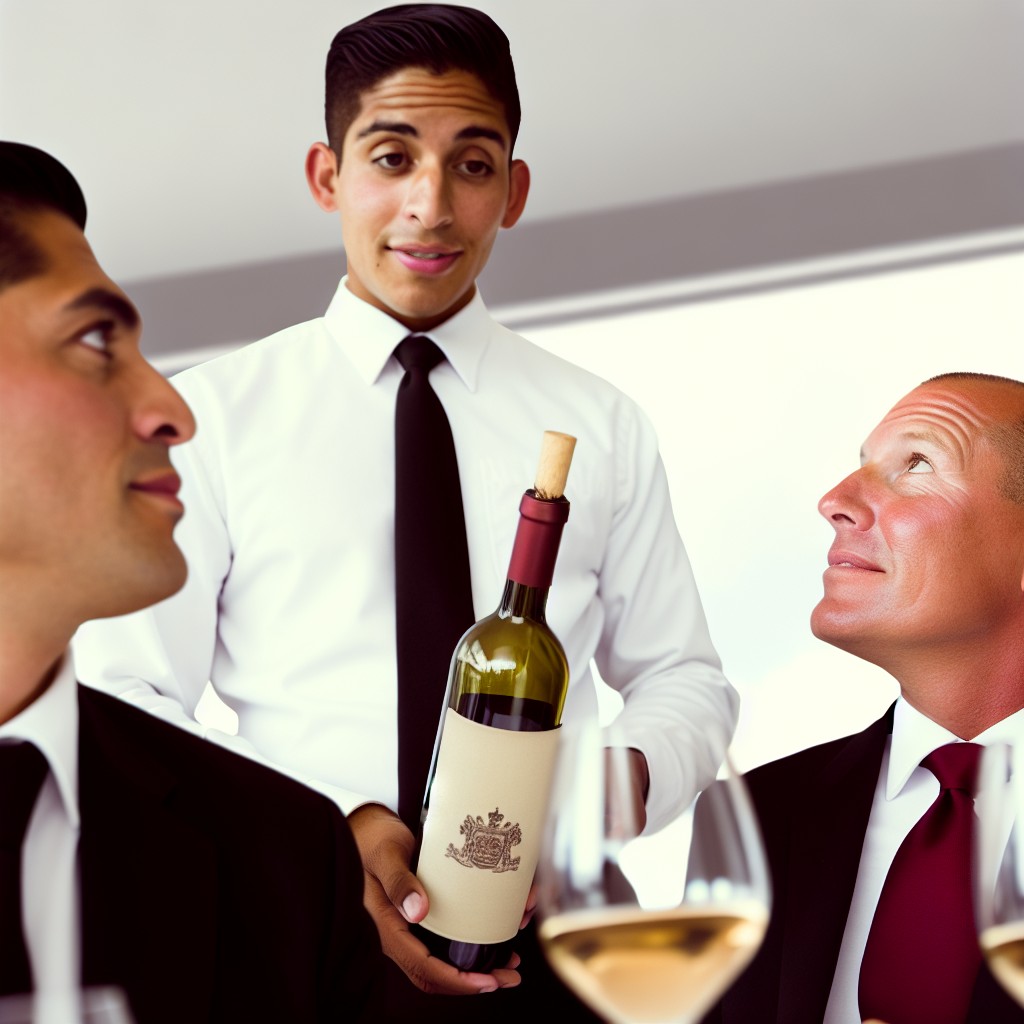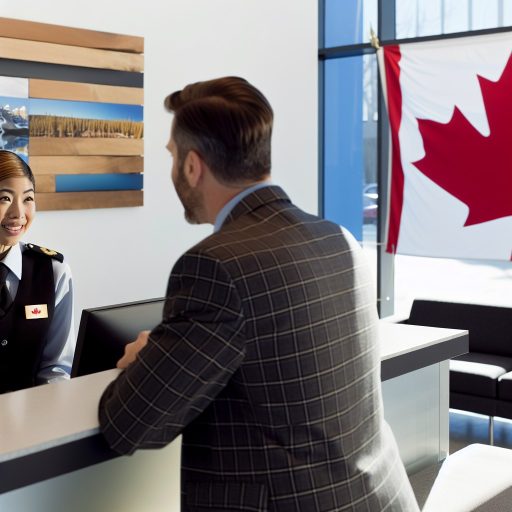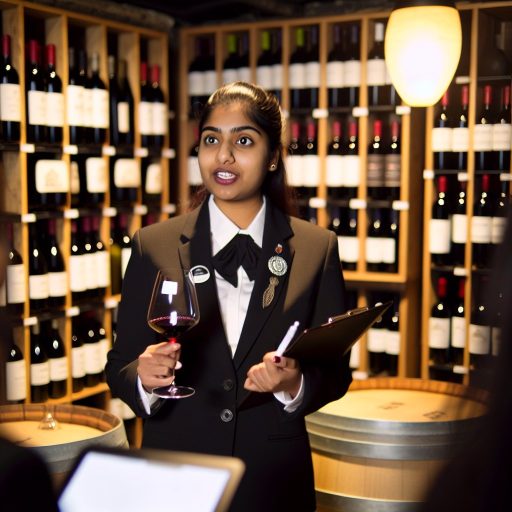The Role of a Sommelier in Enhancing Guest Experiences
Introduction to the Role of a Sommelier
A sommelier specializes in wine and beverage pairings.
Their expertise enriches the dining experience for guests.
They acquire a deep knowledge of various wines, spirits, and beers.
Furthermore, they provide personalized recommendations based on guest preferences.
Creating Memorable Experiences
A sommelier enhances meals through perfect wine pairings.
They consider the flavors of both food and wine.
This thoughtful matching elevates the overall dining experience.
Guests often savor the meal more fully with the right wine.
Educating Guests
Another vital role of a sommelier is guest education.
They share insights about wine regions and grape varieties.
Guests gain appreciation for the complexity of wines.
This knowledge can enhance their confidence in future selections.
Providing a Luxurious Dining Atmosphere
A sommelier contributes to a sophisticated dining ambiance.
Their professionalism sets a tone of excellence.
They often engage with guests in an inviting manner.
This personal touch fosters connection and comfort.
Staying Current with Trends
It’s essential for sommeliers to stay updated on industry trends.
They follow emerging wine regions and varietal innovations.
Ongoing education allows them to present unique options.
This knowledge keeps the dining experience fresh and exciting.
Collaboration with Culinary Teams
Effective communication with chefs is crucial for a sommelier.
They collaborate on menu development and food pairings.
This teamwork ensures coherence between wine and food offerings.
Such synergy enriches the guest experience significantly.
Understanding Wine: The Sommelier’s Expertise in Varietals, Regions, and Vintages
Fundamentals of Wine Knowledge
A sommelier possesses in-depth wine knowledge.
Unlock Your Career Potential
Visualize a clear path to success with our tailored Career Consulting service. Personalized insights in just 1-3 days.
Get StartedThis expertise includes understanding various wine varietals.
Regions play a crucial role in wine characteristics.
Different vintages yield unique flavor profiles.
Therefore, sommeliers enhance the guest experience with informed choices.
Understanding Wine Varietals
Wine varietals define the grape type used in production.
Each varietal has unique flavor compounds and characteristics.
For instance, Pinot Noir offers berry notes with earthy undertones.
In contrast, Cabernet Sauvignon is robust with darker fruit flavors.
Sommelier expertise helps guests pair varietals with their meals.
Exploring Wine Regions
Wine regions greatly impact the wine’s flavor profile.
For example, wines from Napa Valley often exhibit richness and depth.
Conversely, wines from Bordeaux are known for their complexity.
Additionally, climates can influence the vine’s growth behaviors.
Thus, sommeliers guide guests on regional selections that complement their preferences.
The Importance of Vintages
Vintages denote the year grapes were harvested.
Weather conditions significantly impact the quality of each vintage.
For example, a hot year may produce more concentrated flavors.
In contrast, a cooler year can lead to more nuanced profiles.
Sommelier insights help guests understand vintage variations.
Enhancing Guest Experiences
A knowledgeable sommelier elevates the dining experience.
They curate wine lists that reflect diverse preferences.
Moreover, sommeliers offer personalized recommendations.
This interaction creates memorable dining moments for guests.
Ultimately, the role of a sommelier enriches the overall experience.
How Sommeliers Create Personalized Wine Pairings for Guests
Understanding Guest Preferences
Sommeliers begin by understanding each guest’s preferences.
They engage guests in conversation to learn about their tastes.
Questions may include favorite flavors and past experiences with wine.
This dialogue helps them curate a personalized experience.
Considering the Menu
A knowledgeable sommelier carefully reviews the menu.
They match wine selections to the dishes available.
Sommeliers aim to enhance the flavors of both food and wine.
For example, they might pair a rich Cabernet Sauvignon with a hearty steak.
Offering Recommendations
After considering guest preferences and the menu, sommeliers make suggestions.
They explain why specific wines complement certain dishes.
This adds an educational element to the dining experience.
Guests appreciate insights into the origin and tasting notes of the selected wines.
Creating a Unique Experience
Sommeliers strive to create a memorable experience for guests.
They may offer tastings of several wines before the final selection.
This adds an interactive element to the pairing process.
Ultimately, the goal is to make each guest feel special and valued.
Finalizing the Pairing
Once decisions are made, sommeliers finalize the wine pairing.
They take care in presenting the wine to enhance its appeal.
Proper service includes decanting and ideal temperature settings.
This attention to detail elevates the overall dining experience.
Discover More: Spa Manager Salary Expectations In Canada
The Impact of a Sommelier on the Overall Ambiance of a Restaurant
Creating a Welcoming Atmosphere
A knowledgeable sommelier enhances the restaurant’s welcoming feel.
They engage guests with a friendly demeanor.
This interaction stimulates conversation and connection.
Ultimately, it creates a sense of belonging.
Curating the Wine List
A well-curated wine list elevates the dining experience.
It reflects the restaurant’s style and culinary offerings.
The sommelier tailors the list to complement the menu.
They introduce guests to unique and local wines.
This curation adds an element of discovery for visitors.
Enhancing Flavor Profiles
The sommelier skillfully pairs wine with food.
This pairing enhances the overall flavor experience.
Guests appreciate the thoughtfulness of these recommendations.
Consequently, their meals become more memorable.
Guiding Through Wine Selection
A sommelier guides guests through their wine selection process.
They ask about preferences and recommend accordingly.
This personalized attention builds trust and rapport.
Moreover, it creates a customized dining experience.
Educating Guests
Lastly, a sommelier educates guests about wine.
They share interesting stories and facts.
This knowledge enriches the dining experience.
Guests leave feeling more informed and appreciated.
Learn More: Tips for Providing Outstanding Concierge Services
Training and Knowledge Required to Become a Successful Sommelier
Understanding Wine Basics
A solid foundation begins with understanding wine basics.
This includes knowledge of grape varieties and wine regions.
Furthermore, it involves learning about different wine-making processes.
Developing Palate and Sensory Skills
A sommelier must develop a refined palate.
This skill involves tasting wines to identify aromas and flavors.
Practicing with a variety of wines enhances sensory perception.
Wine Pairing Techniques
Pairing food and wine is an essential sommelier skill.
Learning flavor profiles helps in making smart pairing choices.
Additionally, understanding guest preferences enhances dining experiences.
Educational Qualifications
Many sommeliers pursue formal education in hospitality management.
Specialized wine programs offer certifications in wine knowledge.
Furthermore, attending workshops strengthens their expertise.
Practical Experience in the Industry
Gaining practical experience is crucial in this profession.
Working in restaurants or wineries provides hands-on training.
Moreover, interacting with guests hones communication skills.
Staying Updated with Industry Trends
The wine industry constantly evolves with new trends.
Sommeliers must stay informed about emerging wines and regions.
Additionally, attending industry events expands their knowledge base.
Uncover the Details: Secrets to Success in the Concierge Profession
The Sommelier’s Role in Wine List Development and Management
Curating the Wine Selection
The sommelier plays a critical role in curating the wine selection.
This involves sourcing wines from various regions across the globe.
For instance, a sommelier may choose wines from France, Italy, or South America.
In addition, they consider the preferences of the target clientele.
This ensures that the wine list reflects customer tastes and trends.
Balancing Variety and Quality
A successful wine list achieves a balance between variety and quality.
Quality wines can enhance the dining experience immensely.
Thus, sommeliers must meticulously evaluate each option.
They often conduct tastings to determine the best selections.
Furthermore, they consider food pairings with each wine.
Pricing Strategies
Pricing is an essential component of wine list management.
A sommelier determines price points based on various factors.
These may include the cost of acquisition, market demand, and competitors’ pricing.
As a result, they establish a price range that appeals to guests.
Additionally, sommeliers must ensure that the markups are appropriate.
Continuous Evaluation and Updates
The wine list requires ongoing evaluation and updates.
Changing customer preferences and seasonal availability impact selections.
Sommeliers routinely analyze sales data to identify trends.
This information helps in making informed decisions for the wine list.
Additionally, they can introduce new wines to keep the list fresh.
Training and Educating Staff
Education is an often-overlooked aspect of a sommelier’s role.
They train restaurant staff on wine knowledge and service.
This equips team members to make informed recommendations to guests.
Moreover, sommeliers host tastings to enhance the staff’s palate.
This camaraderie boosts the confidence of the staff in wine pairings.
Engaging with Guests
Ultimately, the sommelier enhances the guest experience.
They engage with customers on wine selections based on preferences.
This personal interaction fosters a connection and loyalty.
Furthermore, sommeliers can suggest ideal pairings for meals.
This thoughtful engagement elevates the overall dining experience.
Gain More Insights: Effective Communication Tips for Front Desk Agents

Enhancing Guest Engagement Through Wine Tastings and Educational Events
Importance of Wine Tastings
Wine tastings offer an engaging experience for guests.
They create a unique opportunity to explore various flavors.
Moreover, tastings help guests appreciate the complexity of wine.
Through guided sessions, sommeliers impart knowledge to participants.
Guests enjoy learning about wine origins and production methods.
This enhances their overall dining experience significantly.
Crafting Memorable Educational Events
Educational events help demystify the world of wine.
These events foster interaction between guests and sommeliers.
Participants gain firsthand knowledge about wine selection.
Additionally, sommeliers share pairing tips and tasting notes.
Events may include workshops or themed dinners.
Each occasion builds a lasting connection with wine enthusiasts.
Creating a Welcoming Atmosphere
A welcoming atmosphere encourages guest participation.
Attention to detail enhances the overall experience.
For example, suitable lighting and comfortable seating are essential.
Moreover, providing informative materials adds value to events.
Guests appreciate thoughtful gestures like personalized wine lists.
Ultimately, a positive environment leads to repeat visits.
Marketing Wine Experiences
Marketing plays a crucial role in promoting wine events.
Effective advertisements attract diverse audiences.
Utilizing social media and email newsletters increases visibility.
Inviting local influencers can also boost attendance.
Every strategy should emphasize the uniqueness of the experience.
Engagement before the event builds anticipation and excitement.
Feedback and Improvement
Collecting guest feedback after events is vital.
It helps identify strengths and areas for improvement.
Surveys or casual conversations can provide valuable insights.
Adjustments based on feedback enhance future events.
Continuous learning ensures a dynamic and engaging experience.
Ultimately, a focus on improvement increases guest satisfaction.
Challenges Faced by Sommeliers in Today’s Restaurant Industry
Increasing Competition
The restaurant industry experiences intense competition.
This competition forces sommeliers to differentiate themselves.
Effective marketing strategies become more crucial than ever.
Moreover, sommeliers must develop unique wine lists.
Shifts in Consumer Preferences
Consumer preferences are rapidly evolving.
Guests increasingly seek wines that are organic and sustainable.
As a result, sommeliers must stay informed about trends.
They also need to expand their wine selections accordingly.
Budget Constraints
Many restaurants face tightening budgets.
This limitation impacts the overall wine program.
Sommeliers often struggle to maintain quality and diversity.
Consequently, they must negotiate better deals with suppliers.
Staff Training and Knowledge
Training staff about wine is often neglected.
This oversight limits the dining experience for guests.
Sommeliers need to educate waitstaff on wine pairings.
Wine knowledge should be consistent across the team.
Technology Integration
Technology plays a growing role in the restaurant industry.
Sommeliers must adapt to new tools and systems.
Digital wine lists and inventory systems require training.
Ultimately, embracing technology can enhance customer interactions.
The Future of the Sommelier Profession
Adapting to Changing Trends
The sommelier profession continually evolves to meet guest expectations.
Increasingly, guests seek personalized experiences that reflect their tastes.
Somms are adapting by creating curated wine lists tailored for individual guests.
Moreover, they utilize technology to enhance wine education and accessibility.
This includes apps and interactive menus that engage customers in the selection process.
Emphasizing Sustainability
Another trend shaping the sommelier role is sustainability.
Consumers today are increasingly eco-conscious when choosing wines and dining options.
Somms now prioritize sourcing from wineries that practice sustainable methods.
By highlighting organic and biodynamic wines, they cater to environmentally aware guests.
This commitment also elevates the sommelier’s role as a responsible educator.
Integrating Diverse Tastings
The trend toward diversity in wine offerings is also noteworthy.
Guests are eager to explore wines from lesser-known regions and varietals.
Somms introduce unique tasting flights featuring international selections.
This not only expands guests’ palates but also enriches their dining experience.
Engaging stories behind each selection further enhance guest appreciation and enjoyment.
Trends in Guest Preferences
Personalized Wine Pairings
Today’s guests desire personalized wine pairings that complement their meals.
Somms actively recommend wines based on individual preferences and dietary restrictions.
This tailored approach significantly enhances the overall dining experience.
It also demonstrates the sommelier’s expertise in wine and food harmonization.
Interest in Local Wines
Guests increasingly show interest in local wines and producers.
Somms foster this enthusiasm by showcasing regional selections on their lists.
Highlighting local varieties introduces guests to the unique flavors of their surroundings.
This local focus not only supports regional economies but also enriches culinary experiences.
Educational Experiences
Modern guests often seek educational experiences related to wine.
They appreciate tastings that include information about grape origins and winemaking techniques.
Somms can enhance these experiences by hosting interactive sessions and workshops.
Such endeavors solidify the sommelier’s status as an authority in wine education.
This trend builds stronger connections between guests and their wine choices.




